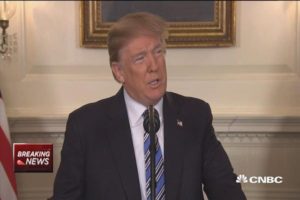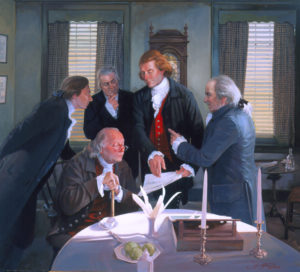This comes as no new great news flash. I’ve known it all along. So have you.
Donald Trump today demonstrated with absolute clarity that he doesn’t understand a fundamental tenet of governing. It is that effective governance at the highest levels is a team sport.
The president signed that $1.3 trillion omnibus spending bill. While announcing his signature this morning, Trump laid some heavy lumber on Congress, namely congressional Democrats. He blamed them for wanting to gut our military; he blamed them for opposing reforms on illegal immigration.
He blamed Congress for sending him a huge bill that “nobody has read,” yet he signed it anyway. Trump said he’d “never sign” another bill like this ever again.
What one never hears from this guy is that he is a player, too, in government’s fits and starts, its occasional paralysis. He does not fathom how effective government is supposed to work. It is designed to bring the executive branch and the legislative into the same room, to reach common ground, to compromise where possible.
Does this individual get it? No. He doesn’t. Trump continues to lay blame at everyone else’s feet. He continues to assert that the other guys are at fault. The other guys, in this case, are lawmakers of the other party.
The president’s business background did not prepare him for the delicate nature of legislating and negotiating with legislators. He’s always been the Big Man in Charge. It’s always been his game to win.
I keep circling back to this fundamental shortcoming in Donald Trump’s shocking ascent to the presidency: His entire professional career was centered solely, exclusively on self-enrichment, on self-aggrandizement and self-promotion.
Every time he opens his trap, every time he tweets out pronouncements and proclamations, we are “treated” to evidence of his utter lack of knowledge and understanding of how government works.
The president needs to take ownership of the failures that come along, just as he is all too willing to take ownership of the successes.
Once again, this morning, Donald Trump showed that he doesn’t understand — nor is he likely to ever understand — the immense complexities of his high office.

